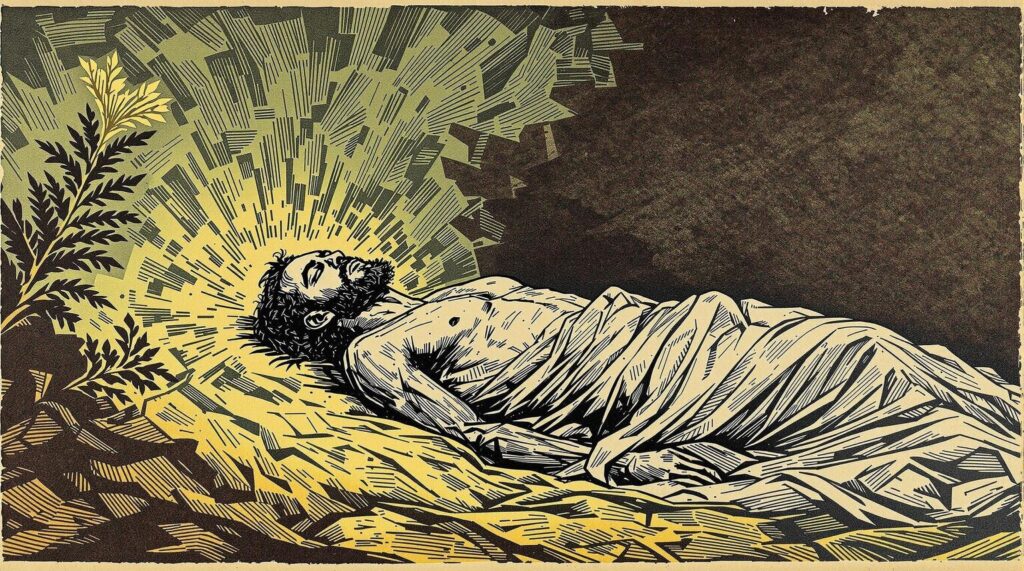In this chapter, Zarathustra critiques those who die either too late or too early, emphasizing the importance of dying “at the right time”. He suggests that many people cling to life unnecessarily, comparing them to overripe fruits that remain on the tree until they are rotten and worm-eaten. He speaks of the “superfluous”—those who never truly live at the right time and therefore cannot die appropriately.
He introduces the idea of a “fulfilling death” that serves as an inspiration and a pledge to the living. He envisions a death surrounded by hope and affirmation, where the dying person sanctifies the vows of those who remain. Zarathustra contrasts this noble death with those who die in a petty or insignificant manner, likening them to thieves who sneak away or to sour apples that wither on the branch.

The fulfilled one dies a victorious death, with hopers and promisers around him.
Throughout the chapter, Zarathustra makes allusions to religious figures and doctrines. He references “that Hebrew” whom the preachers of slow death honor—an allusion to Jesus Christ. Zarathustra asserts that Jesus died too early and that, had he lived longer, he might have recanted his teachings and learned to embrace life and laughter. This serves to critique both the glorification of premature death and the rejection of earthly existence found in certain religious teachings.
Zarathustra also alludes to the concepts of honor and fame, suggesting that those who seek glory must learn the difficult art of departing at the right time. He emphasizes the importance of not overstaying one’s welcome in life, much like a dish that ceases to be enjoyable if consumed for too long.
The chapter concludes with Zarathustra expressing his desire to die in such a way that inspires his friends to love the earth more. He metaphorically passes on his “golden ball”—his goals and ideals—to his companions, encouraging them to continue his legacy.
